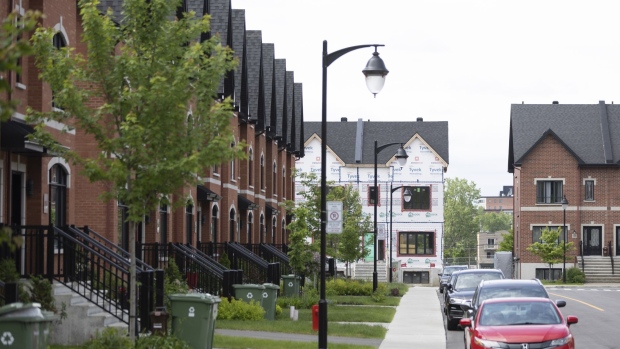Oct 12, 2022
Canada Recession Will Come Early in 2023, RBC Forecasts
, Bloomberg News

(Bloomberg) -- Canada’s cooling housing and jobs markets, slowed down by one of the most aggressive rate hiking cycles ever by the nation’s central bank, will speed up the arrival of a recession next year, the country’s largest lender said.
Royal Bank of Canada was the first major bank to predict the Canadian economy will see back-to-back quarters of negative growth in mid-2023. Now, it sees the downturn arriving as early as the first quarter of next year.
“Cracks are forming in Canada’s economy. And the pressure is still building,” economists Nathan Janzen and Claire Fan said in a report published on Wednesday. “More stubborn inflation trends over the coming months could yet prompt additional hikes, and a potentially larger decline in household consumption and a deeper recession.”
Record-high inflation and higher debt servicing costs are expected to shave nearly C$3,000 ($2,174) from average purchasing power for households in 2023, the report said. The weakening in the economy is expected push the jobless rate close to 7%, up almost 2 percentage points from current levels.
“The pain of the upcoming recession won’t be distributed equally among Canadian businesses and households,” according to the report. The manufacturing sector will likely be among the fist to pull back, the economists said.
RBC expects the Bank of Canada to pause its tightening cycle later this year if inflation pressures ease. That would leave the overnight rate at 4%, or a 75 basis-point increase over the next two policy meetings on Oct. 26 and Dec. 7.
The Bank of Canada has raised interest rates by three percentage points to 3.25% since March to quell price pressures.
©2022 Bloomberg L.P.


